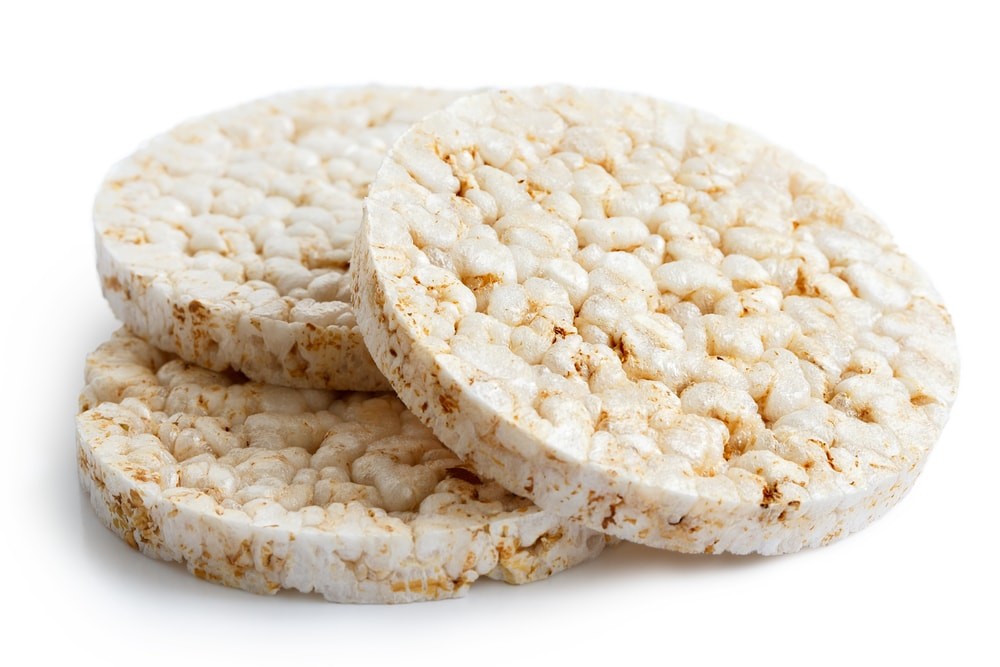
Rice cakes, the popular low-calorie snacks made from puffed rice grains, have become a common household item. While plain rice cakes are generally safe for canine consumption in moderation, their suitability as a dog treat requires careful consideration. These crunchy snacks contain minimal fat and approximately 26-27 calories per cake, making them a potential occasional treat. However, their low nutritional value and the risks associated with flavored varieties necessitate a thorough understanding of proper feeding guidelines. This report examines the safety aspects, nutritional implications, and best practices for incorporating rice cakes into a dog's diet.
Types of Rice Cakes for Dogs
Plain vs Flavored Options
While plain rice cakes are generally safe for dogs in moderation, flavored varieties pose risks. Plain rice cakes made from brown or white rice with minimal salt are acceptable as occasional treats. However, flavored options like caramel, chocolate, salt and vinegar, or spinach should be strictly avoided as they may contain harmful ingredients. Chocolate rice cakes are toxic, while caramel and other sweetened varieties can lead to dental issues and blood sugar spikes. Seasoned versions often contain spices, excessive sodium, or artificial additives unsuitable for canine consumption.
Nutritional Value and Serving Size
A single plain rice cake contains approximately 26-27 calories but offers minimal nutritional benefits. When offering rice cakes as treats, they should be broken into small pieces and limited to no more than 10% of the dog's daily caloric intake. While rice cakes provide some carbohydrates for energy, they should not replace proper dog food or be given daily.
Can Dogs Safely Eat Plain Rice Cakes & Health Risks of Flavored Varieties
Safety Guidelines for Plain Rice Cakes
While plain rice cakes are safe for dogs in moderation, certain dogs should avoid them entirely. Diabetic dogs should not consume rice cakes due to their high glycemic index. Dogs with rare rice allergies must also abstain. For healthy dogs, plain rice cakes should only be given occasionally as treats, broken into small pieces to prevent choking. Veterinary consultation is recommended before introducing rice cakes into a dog's diet.
Health Concerns with Flavored Varieties
Flavored rice cakes pose specific risks beyond those discussed in previous sections. Dogs consuming flavored varieties may experience digestive upset, tooth decay from added sugars, and blood sugar fluctuations. Hidden ingredients in "flavoring" additives make it difficult to identify potentially toxic components. The high sodium content in seasoned varieties can lead to excessive thirst and urination.
Digestive Considerations and Alternative Treats
Digestive Impact on Dogs
While previous sections covered general safety, it's important to note specific digestive considerations. Rice cakes' dry, crunchy texture can cause choking or gastrointestinal obstruction if not properly broken down. The high starch content may lead to constipation in some dogs. For dogs with sensitive stomachs, even plain rice cakes should be introduced gradually to monitor tolerance.
Healthier Treat Alternatives
Rather than rice cakes which offer minimal nutrition, veterinarians recommend alternatives like plain cooked rice mixed with lean protein for sick dogs. For training treats, small pieces of carrots, apples (without seeds), or commercial dog treats specifically formulated for canine nutrition provide better options. These alternatives offer more nutritional benefits while still satisfying dogs' desire for treats.
Conclusion
While plain rice cakes are generally safe for dogs in moderation, they offer minimal nutritional value and should only be given as occasional treats. Plain varieties made from brown or white rice with minimal salt are acceptable when broken into small pieces, but should not exceed 10% of a dog's daily caloric intake. However, flavored rice cakes containing ingredients like chocolate, caramel, or excessive sodium pose serious health risks and should be strictly avoided.
For optimal pet health and safety, owners should consider healthier treat alternatives that provide greater nutritional benefits, such as plain cooked rice with lean protein, carrots, or commercial dog treats specifically formulated for canines. Dogs with diabetes, rice allergies, or sensitive stomachs should avoid rice cakes entirely. As with any dietary changes, consulting a veterinarian before introducing rice cakes is recommended to ensure they are appropriate for your specific dog's needs.